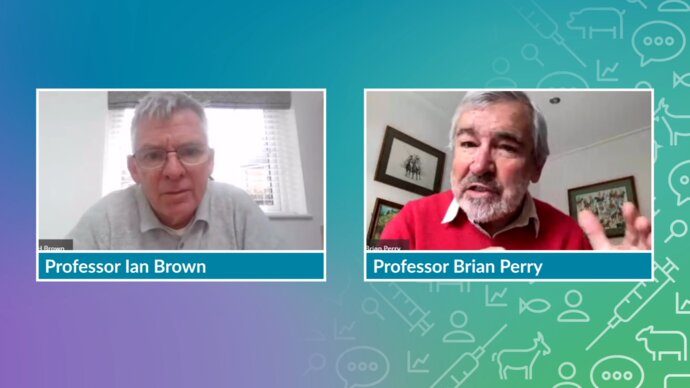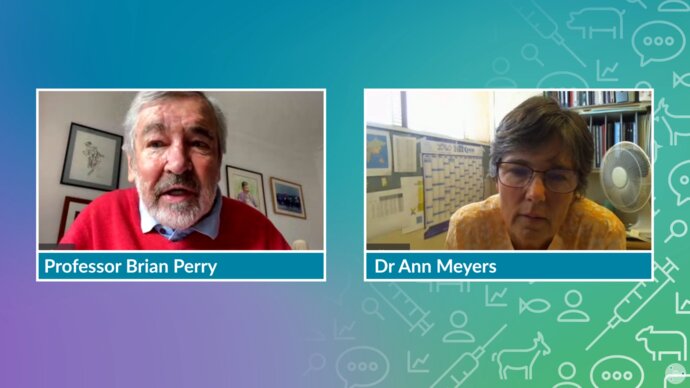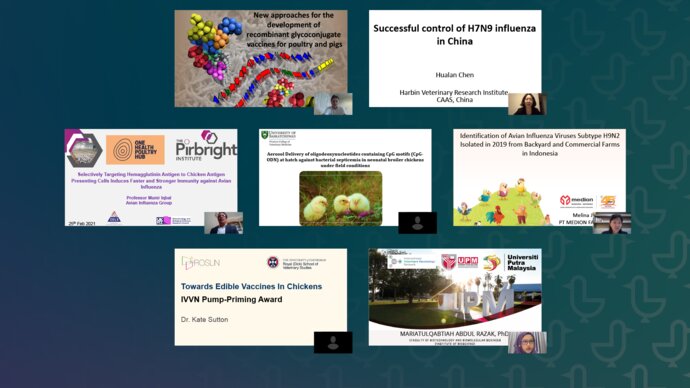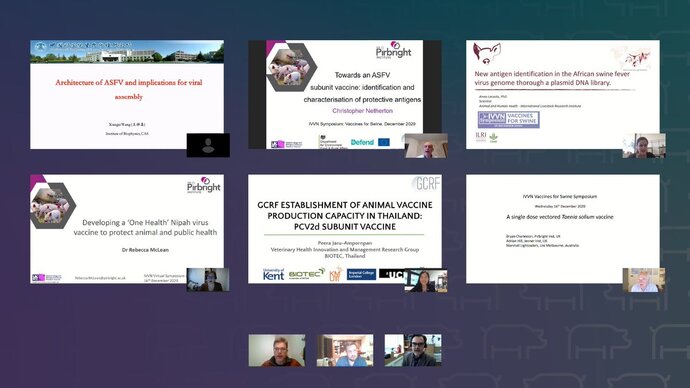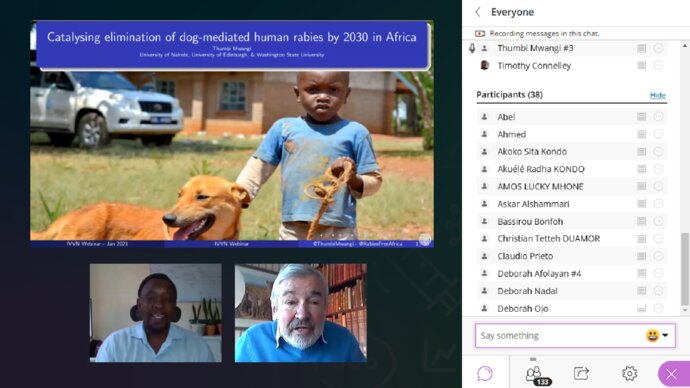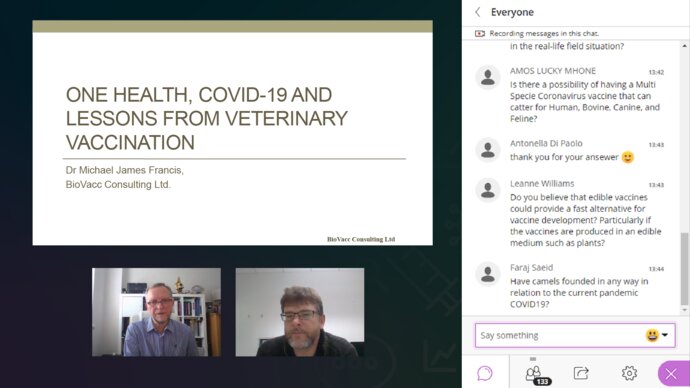IVVN partners with AWARD to host a webinar on women in science and leadership
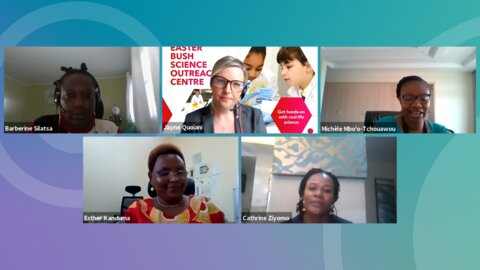
Building on this year’s International Women's Day theme, the International Veterinary Vaccinology Network (IVVN), together with African Women in Agricultural Research and Development (AWARD), yesterday hosted a webinar on women in science and leadership.
The discussion, hosted live online, saw four women with different scientific backgrounds share their experiences and highlight the challenges and opportunities for women in science, technology and innovation.
UN Women's theme for this year's International Women's Day was 'women in leadership: achieving an equal future in a COVID-19 world'. The webinar built on this theme by exploring how we can pave the way for more women to access science careers, grow into leadership, and last in those leadership positions to sustain the pipeline.
The webinar was moderated by AWARD's deputy director, Dr Michèle Mbo’o-Tchouawou, who introduced the session as a conversation about the systemic barriers that perpetuate the gender gap in science, and a chance to highlight opportunities for closing this gap.
While we continue to applaud women's outstanding achievement in these fields, we also continue to acknowledge with force that there is still a long way towards supporting and even inspiring more young women to explore and embrace science careers, grow their leadership potential and effectively influence the agenda and the vision for science and technology development in different parts of the world.
—Dr Michèle Mbo’o-Tchouawou, AWARD
The discussion began with our four panellists sharing their experiences as women in different areas of science.
The first of the four panellists to speak was Dr Cathrine Ziyomo, a senior scientist and director of the BecA-ILRI Hub in Kenya. She spoke about the impact her female supervisor had on her early in her career, and discussed the importance of investing in your own future.
The value of mentors and role models is very, very critical in the success of women – just knowing and seeing someone who looks like you actually making it and succeeding in their position.
—Dr Cathrine Ziyomo, BecA-ILRI Hub
Next up was Dr Esther Kanduma, a scientist at the University of Nairobi, Kenya. She too highlighted the importance of mentors, as well as using our networks and partnerships to succeed.
The world needs women, and science needs women, and I think all of us have a role to play to promote the full and effective participation of women in science.
—Dr Esther Kanduma, University of Nairobi
The third of our panellists to address the audience was Jayne Quoiani, who works as a science outreach officer at the Roslin Institute, University of Edinburgh. She spoke of the importance of making women more visible in science through public engagement.
It comes back to the effects of having women underrepresented in science, because you can’t be what you can’t see.
—Jayne Quoiani, University of Edinburgh
And Dr Barberine Silatsa Assongo from the University of Dschang, Cameroon, gave her perspective as a francophone researcher, and the value of her mentors’ support. She joined us from Canada, where she has been working as a risk adviser with the Canadian Red Cross, helping to support the control of Covid-19, including mass vaccination.
This webinar is a live example of the willingness of people to sit down to acknowledge that there is a problem, to talk about it and to see how we can find solutions.
—Dr Barberine Silatsa Assongo, University of Dschang
The discussion then turned to how the leaky pipeline, whereby early career women scientists leave the profession, can be fixed. Jayne Quoiani said that it was important to consider what happens before women become scientists in the first place, and that many traditional stereotypes in society still exist. “There’s a considerable problem with the strength of the pipeline before we even consider that it’s leaky, I would suggest,” she said.
Dr Cathrine Ziyomo said that institutions need to put arrangements in place to achieve diversity. “It is not only a question of retention or recruitment into these positions, but also promotion, and the support that we need to make sure that we also succeed, and we can also mentor and support others that are coming up.” Dr Ziyomo said.
Dr Esther Kanduma suggested that having gender champions may be a good way of realising change in the face of institutional inertia. “We need to have voices with a lot of force that can make our institutions implement that which they have promised.”
We are grateful to all the panellists for making the webinar such an engaging session, and to all the participants who attended for joining in the discussion. We are also grateful to Dr Michèle Mbo’o-Tchouawou for chairing the session and to AWARD for jointly organising the session. You can watch a full recording of the session here.
